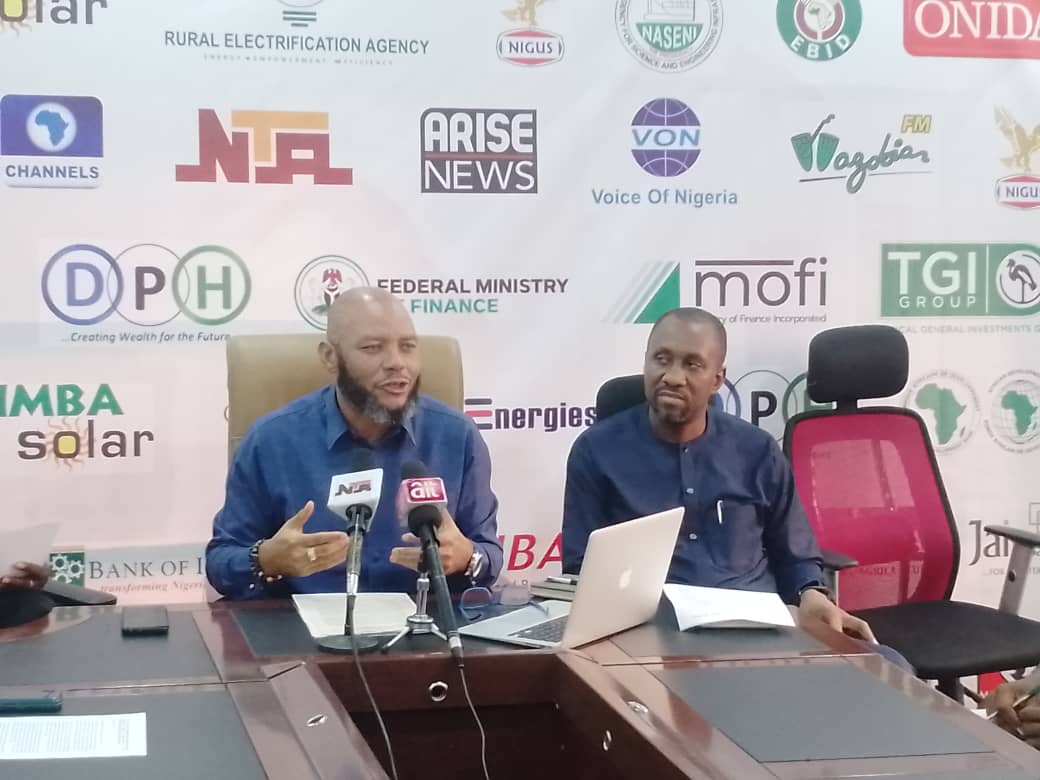782
By Lizzy Chirkpi
Financial solutions firm, Deutsche Partners Holding (DPH) has called for the development of sustainable energy and agricultural infrastructure, given their significance in fostering economic stability, alleviating poverty, generating employment, and driving innovation.
Addressing journalists in Abuja on Monday ahead of the third Infrastructure Dialogue, Managing Partner at DPH, Dr. Onuoha Nnachi underscored the critical need for strategic financing to translate ambitious goals into tangible action.
The upcoming dialogue, themed “Financing Sustainable Energy and Agricultural Infrastructure for Economic Development will hold on Thursday, Monday, April 10, at the Yar’Adua Centre in Abuja.
Nnachi outlined three fundamental pillars crucial for achieving sustainable development in these sectors: collaboration, innovation, and impact.
“First, collaboration. No single government, company, or organisation can tackle the infrastructure gap alone.
“Public-private partnerships are essential to pool resources, share risks, and amplify results. Governments can set the stage with policies that incentivize green energy and modernize agricultural systems, something like tax credits for solar-powered irrigation or subsidies for climate-resilient crops.”
He further highlighted the vital roles of the private sector and international organizations.
“Private sector leaders, meanwhile, bring capital, expertise, and cutting-edge technology to the table. International organizations and development banks can further catalyze these efforts with funding and technical support. With a mix such as this, we can build sustainable infrastructure like roads to transport crops, grids to deliver clean energy, and storage systems to reduce waste,” he said.
On the importance of forward-thinking financial approaches, Nnachi addressed the subject matter of innovation.
“Financing sustainable infrastructure is about rethinking how we allocate resources. Green bonds, for instance, have emerged as a powerful tool to fund renewable energy projects, from wind farms to microgrids that power rural farms.”
He also pointed the potential of blended finance and technological advancements.
According to him, “Blended finance models, combining public grants with private investment, can unlock opportunities in regions where risks might otherwise deter funders. And let’s not overlook the role of technology: digital platforms can connect small-holder farmers to markets, while Ai-driven tools can optimize energy use in real time. These innovations don’t just save money, they create value, turning infrastructure into an engine of growth.”
He also estressed the significance of measurable outcomes which focuses on impact.
“Every penny we invest must deliver measurable results. Sustainable energy infrastructure reduces carbon emissions, improves air quality, and cuts energy costs for farmers and businesses.
Agricultural infrastructure, whether it is cold storage, efficient irrigation, or rural electrification, boosts productivity, reduces food loss, and strengthens food security.
“These outcomes ripple outward, creating jobs, raising incomes, and stabilising communities. Whatever funds are put into these are investments in human potential and economic resilience,” he asserted.
Conclusively, he called on policymakers, business leaders, financiers, and citizens, “to commit to this shared mission. Let us prioritize projects that deliver clean energy to rural areas. Let us fund the infrastructure that gets crops from fields to markets. Let’s measure success not just in profits, but in people lifted up and ecosystems preserved.”



